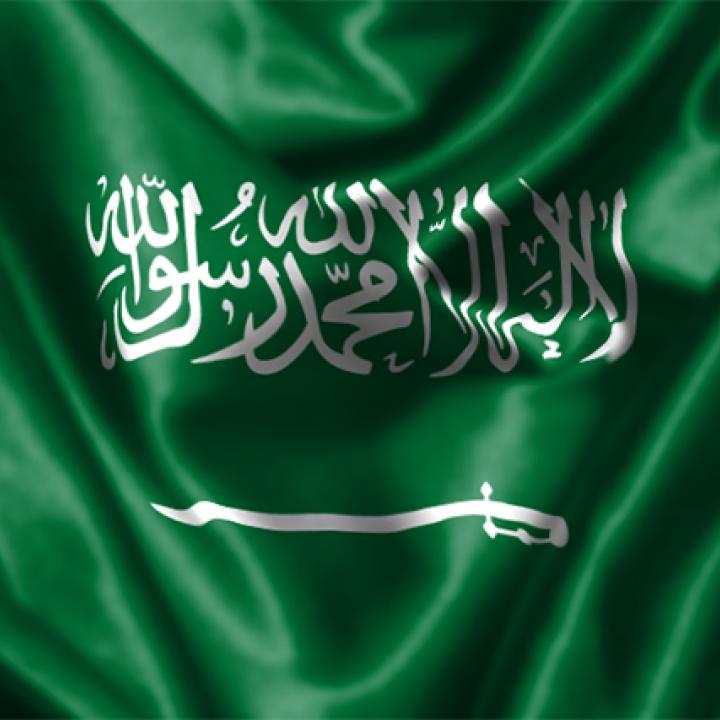

The appointment of a new crown prince and the promotion of the king's son to deputy crown prince will likely increase tension in the Saudi royal family.
Earlier today, Saudi Arabia published twenty-six royal orders announcing numerous changes to the kingdom's cabinet and succession sequence, ranging from the dramatic to the bureaucratic. Out goes Crown Prince Muqrin, who had been King Salman's designated successor but is now being replaced by Prince Muhammad bin Nayef (a.k.a. MbN), the interior minister and deputy crown prince. Taking up MbN's deputy slot is wunderkind Muhammad bin Salman (MbS), the king's thirty-something-year-old son who is already defense minister. Also out is Foreign Minister Saud al-Faisal, the prince who had served in that post for nearly four decades but has been plagued by ill health. He is being replaced by Saudi ambassador to Washington Adel al-Jubeir, whose own replacement has yet to be announced.
Such sudden changes -- coming just three months after King Salman's accession, when he made sweeping changes in the power structure he inherited from King Abdullah -- are a reminder that the Saudi political system remains somewhat opaque. Jubeir discussed this perception when he was a doctoral candidate at Georgetown University in the early 1990s; in a paper titled "The Foreign Policy of the Saudi State," he wrote, "Winston Churchill's description of the Kremlin as a 'riddle wrapped in a mystery inside an enigma' is a close approximation of the way some modern-day observers interpret and see the Kingdom of Saudi Arabia." While sneering at such observers, Jubeir acknowledged that his country was "sui generis" (unique).
What is clear is that the latest reshuffle is happening against a background of crises and controversies on several fronts. The most salient is the kingdom's month-long war in Yemen, a seemingly stalemated conflict that has been complicated by tensions with regional rival Iran and broader Sunni-Shiite antagonism. In addition, the conduct of the war itself has concerned Washington. Meanwhile, the "Islamic State"/ISIS continues to loom large -- yesterday, Riyadh announced that it had arrested ninety-three ISIS suspects so far this year and thwarted an attack on the U.S. embassy. Domestic political and economic pressures spurred some of the changes as well. For instance, a top oil executive has been transferred to run the Ministry of Health, whose hospitals and clinics have been widely criticized for inefficiencies. And the only woman in the cabinet, Deputy Education Minister Nora al-Fayez, has been replaced, likely indicating that religious conservatives have finally blocked her efforts to improve schooling for girls.
Yet the main context of the shakeup appears to be a battle royal in the House of Saud. The extent to which King Salman was involved in the changes is debatable. Reports persist of his frail health, and his numerous recent meetings with an extraordinary array of foreign dignitaries may have kept him away from much of the decisionmaking -- either of his own accord or as a deliberate distraction by those close to him. In the past week alone, he has hosted the president of Eritrea, the prime minister of New Zealand, and, to most people's complete puzzlement, the foreign minister of Lithuania. The king's main influence on the reshuffle appears to be the appointment of MbS as deputy crown prince -- the first time his son has been formally labeled as a future monarch.
By this analysis, the changes represent a continuing transition in Riyadh rather than a new lineup. MbN, the new crown prince, is widely seen as Washington's favorite future king, but the remorseless elevation of MbS in recent months suggests that this young man could replace MbN before he reaches the throne. The king's son certainly appears to have the ambition. Widely believed to be one of the "inexperienced youngsters" caustically referred to by Iranian Supreme Leader Ali Khamenei earlier this month (see PolicyWatch 2412), MbS was favorably described in the royal announcement, which said he has "great capabilities that have become clear to everyone through all works and tasks entrusted to him, and he has been able to perform them in the optimal way." This view was not universal, though -- the order went on to note that he had received "the support of the vast majority of members of the Allegiance Council" (made up of senior royals or their eldest sons), a formulation that suggests some dissent.
Saudi royal politics are traditionally noteworthy for the respect they confer on age, experience, and kingly qualities. MbS lacks the first two, so his strongest suit appears to be his closeness to his father. While the House of Saud is obsessed with publicly displaying a united front to both its subjects and the wider Middle East, it has also historically shown its determination to stay in power even when that meant sidelining monarchs who seemed to jeopardize continuity (as in the case of King Saud in the 1960s). Therefore, today's changes are unlikely to be the last. The main question is when the next round will occur, and who will benefit. Given Saudi Arabia's role as a top oil exporter and leader of the Islamic and Arab worlds, these internal politics will remain a vital interest for Washington.
Simon Henderson is the Baker Fellow and director of the Gulf and Energy Policy Program at The Washington Institute.



